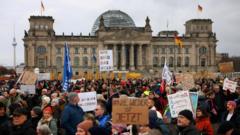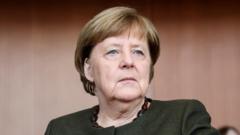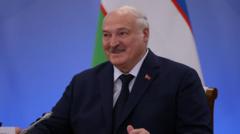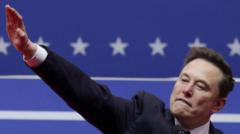In a significant political development, Austria's far-right Freedom Party leader Herbert Kickl has been entrusted with the task of forming a government coalition following the party's electoral success, marking a potential shift in the nation's leadership landscape.
Austria on the Brink of a Far-Right Chancellor: Herbert Kickl Takes Charge

Austria on the Brink of a Far-Right Chancellor: Herbert Kickl Takes Charge
President Alexander Van der Bellen tasks the Freedom Party leader with forming a government after coalition negotiations stall.
In a pivotal moment for Austria's political fabric, President Alexander Van der Bellen has given Herbert Kickl, leader of the controversial Freedom Party, an opportunity to forge a government coalition. This comes after the party triumphed in the general election held on September 29, securing nearly 30 percent of the votes—a clear indicator of the public's shifting sentiments towards Kickl's anti-immigration and pro-Russia policies.
Kickl's ascendancy reflects a broader trend across Europe, where far-right parties are gaining traction amidst rising anti-immigrant sentiments and economic upheaval. Although initially facing resistance from mainstream parties, his potential premiership could shift Austria's foreign policy and governance towards more nationalist sentiments.
After Chancellor Karl Nehammer led previous coalition talks that ultimately collapsed—first with the Social Democrats and then the Neos party—Kickl now stands at the forefront of a politically charged atmosphere. While mainstream parties have labeled him as a threat to democratic values, the Freedom Party's electoral success cannot be ignored, as it compels a reconsideration of traditional coalition dynamics.
As negotiations unfold, the implications of a Kickl-led government will be far-reaching, resonating within Austria and across Europe. The global community is watching closely, given the historical significance of a far-right chancellor potentially emerging in Austria for the first time since World War II. The outcome of these negotiations will likely dictate not just domestic policies but also Austria's role and stance within the European Union.
The coming weeks may determine whether Kickl can navigate the complexities of coalition building or if he will face pushback from established political entities striving to maintain a more centrist approach to governance. Whatever the result, it is clear that Austria is on the verge of a crucial political metamorphosis.






















